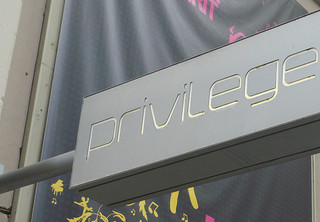 Conducting community engagement trainings in St. Louis in December it was impossible to avoid (not that I wanted to) addressing the question of privilege. This is a huge issue in the arts as substantial portions of the population view the arts establishment as the poster child for privilege of wealth, power, and, of course, race.
Conducting community engagement trainings in St. Louis in December it was impossible to avoid (not that I wanted to) addressing the question of privilege. This is a huge issue in the arts as substantial portions of the population view the arts establishment as the poster child for privilege of wealth, power, and, of course, race.
There is a long history of this association. In Building Communities, Not Audiences, I cited the 1849 Astor Place Riot in New York City in which a rallying cry, referring to the Astor Place Opera House, was “burn the damn den of aristocracy.”
We don’t have to feel privileged to be privileged. My first awakening to this was over twenty years ago talking with an African-American father of a ten-year-old boy (the same age as my son at the time) about what he had to tell his son about dealing with police, shopkeepers, and the public in general. I was stunned, knowing that I did not need to impart any of those lessons to my son.
There have been countless stories I’ve heard since then about the weights I don’t have to bear on a daily basis. Perhaps the most poignant, and the one that often still moves me to tears as I tell it, is of a friend, an African-American attorney, age 70 at the time of telling me the story. He took it upon himself to clean the restroom every time he used a public facility so no one would think he was the one who left it a mess.
Practically the only time I am aware of being white is when I attend an African-American church. People of color operating in a majority culture can’t escape such self-awareness. It’s “in their face” almost constantly. I don’t feel privileged, but these and innumerable other stories are stunning testimony to the fact that I am.
Virtually all established arts organizations benefit from privilege of which they are (mostly) unaware. They, we, are products of a legacy of privilege going back to European aristocracy. If we are to make a credible case for sincerity in our engagement efforts, we must make it clear that we understand the legacy and the current reality and make yeoman efforts to address the inequities that, without any conscious effort, action, or will on our part, exist nonetheless.
To effectively engage, trust is essential. We in the arts have much work to do to earn it, even where we were not the ones to lose it.
Engage!
Doug
Photo:![]()
![]() Some rights reserved by Dr Stephen Dann
Some rights reserved by Dr Stephen Dann
